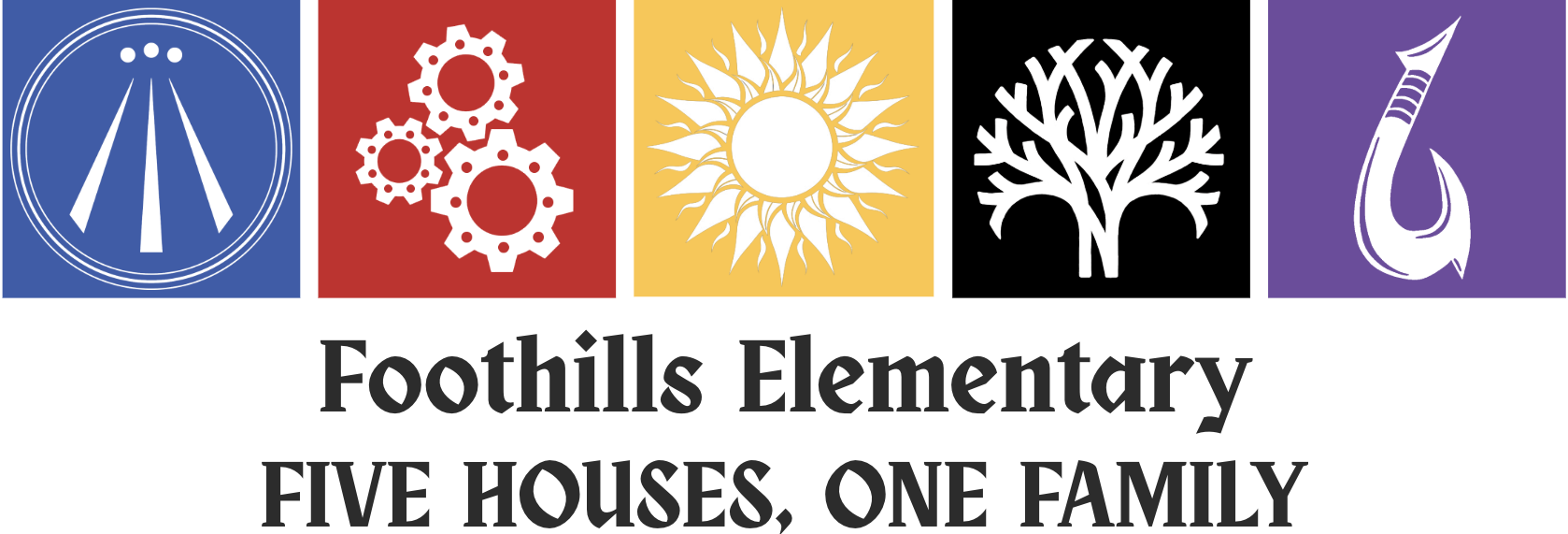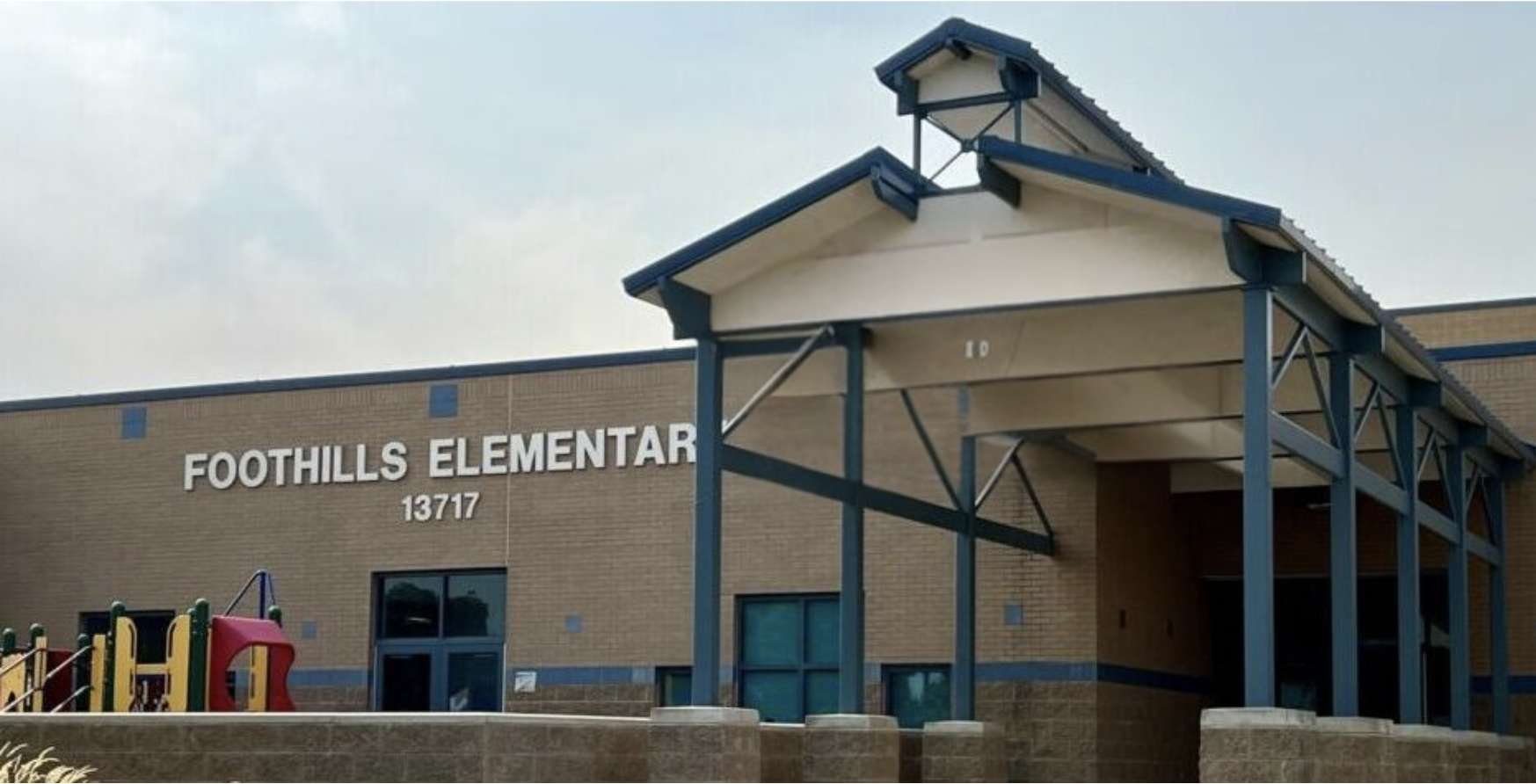Foothills Elementary, as a caring community, is committed to preparing ALL students for the future by providing an optimal learning experience, encouraging students to reach their highest potential in a safe environment.
Prevention Plan Overview
This prevention plan has been created following Jordan District guidelines, which can be reviewed at wellness.jordandistrict.org.
Foothills Elementary Administration and Staff are committed to ‘everyday efforts’ to ensure that students feel safe and are taught strategies and tools for respect, empathy, conflict resolution, and kindness. This builds a sense of community and helps students resolve conflicts peacefully. Students are taught our Big 4 rules, Respect, Responsibility, Safety, and Kindness in their everyday interactions with adults and other students. If a student needs extra guidance or assistance, our school psychologist will teach restorative practices so that students have the skills to deal with situations peacefully and appropriately.
Our school has prioritized prevention through the following everyday efforts:
The Wellness Room:
- Our school implements the use of a classroom in the school for students and staff to come and take a few moments to find peace and quiet for reflection, calm or de-escalation. Our school has hired extra staff members to help implement behavior plans for students and provide support to students when they struggle.
- The Wellness Room provides a safe place for students to go and utilize techniques to de-escalate emotions and process behavior so they can return to the classroom ready to learn.
Behavior:
- Our school Administration trains all staff on behavior management, recognizing major and minor behaviors in the classroom. Faculty members provide supervision on school grounds for 15 minutes before and after school to ensure the safety of students as they arrive and leave school grounds..
- School administration recognizes a “student of the day” each day that has been recognized by another adult on campus for doing something Respectful, Responsible, Safe or Kind. Students are rewarded and phone calls are made to parents about how awesome their student is.
Student and Family Support:
- Our school has a TAT Team of teachers to help identify students that need behavior and academic support beyond the general education classroom.
- Students in 6th Grade have the opportunity to be on our school Student Council, which consists of about 24 students, approximately 4 from each class. These students attend the BYU Student Council Conference every year where they are trained on leadership skills. They work closely with 6th grade teachers to build leadership skills for life, acting as an example for all students at Foothills.
- Our school provides access to District mental health and support resources through Student Services which includes the Jordan Family Education Center Mental Health Access Program.
- Our school provides access to academic support with District departments to support the success of every student.
- Our school’s mental health providers (school counselors, school psychologists, or clinical support) are trained and supported by District administration to follow current best practices in prevention and intervention efforts.
- Our school intervenes with early warning, content monitoring, and anonymous reporting tools with support from District specialists to identify and support students who may be at risk.
- Our school provides access to parent and family resources including a District partnership with the Cook Center for Human Connection, evening parent seminars, and classes through the Jordan Family Education Center.
Suicide Prevention Plan
Our school and district have services to support students who struggle with mental health issues.
- Our school’s mental health providers and administrators are trained on and review District suicide risk intervention guidelines annually with support from Jordan District’s Student Services Team.
- Teachers are required to take a District suicide risk intervention, each year their teaching license comes due.
- Our sixth grade students have been introduced to SafeUT as a resource available to them if they need it.
- Students identified who may be at risk of suicide receive interventions and support appropriate to their individual needs which may include a screening interview (CSSR-S), parent/guardian contact, a safety plan, mental health recommendations/referrals (JFEC, MHAP, etc.), a re-entry meeting, and regular follow-up.
Bullying Prevention Plan
- Our school team proactively reviews relevant data on school climate, safety, and bullying by identifying vulnerable populations (e.g., racial and ethnic groups, LGBTQ youth, students with disabilities) and specific spaces where bullying may be likely and plan supports accordingly.
- Staff is trained on school procedures for recognizing, reporting (SafeUT, content monitoring, etc.), and responding to bullying incidents.
- Students involved in incidents of bullying as targets, aggressors, or witnesses receive support for their individual needs which may include suicide risk assessments, counseling and mental health services (i.e. school mental health team, JFEC, MHAP), Functional Behavior Assessment (FBA), Behavior Intervention Plan (BIP), a student wellness plan and/or parent/guardian contact—recognizing that targets, aggressors, and witnesses of bullying are more susceptible to school problems.
- Our fifth grade participates in the DARE program to develop social and emotional skills (i.e. respect, empathy, conflict resolution, kindness, assertiveness, etc.), build a sense of community, and resolve conflicts peacefully.
Jr. Hope Squad
Our Jr. Hope Squad is a group of 4th-6th graders that are recommended and voted on annually by staff and peers to be a part of Jr. Hope Squad. The team is under the direction of advisors that include teachers, our principal, Abe Yospe, and our school psychologist, Rex Prescott. Attributes that make a great Jr. Hope Squad members are trustworthiness, empathy for others, being inclusive of others that are different from themselves, and having good school attendance. Students are also taught to watch for signs that a fellow Mustang may be struggling in some way such as bullying, having friends or other situations outside of school. Buddy benches are on the playground where students that need a friend to play with can go and sit. Squad members can easily recognize students that need a buddy and a friend.
The Squad teaches monthly lessons to all classes at Foothills. Under advisor supervision and guidance The Squad teaches lessons about:
- Self care
- Resilience
- Being a good friend
- Leadership skills
- Trustworthiness
- Being a good role model
- Being a member of the school and outside communities
Lessons also focus on being kind to others, bullying, and friendship. The Squad is also taught to watch for warning signs of other students that are not being included, either in the classroom or on the playground.
Violence and Safety Prevention Plan
- Our school has a process for timely response to school threats using Comprehensive School Threat Assessment Guidelines (C-STAG) and its decision tree. This includes warning potential victims and their parents/guardians. School administrators are trained on C-STAG, along with other members of our school’s threat assessment team which includes our Principal, Assistant Principal and School Psychologist.
- Students who are affected by or who make threats of violence receive interventions and support appropriate to their individual needs which may include problem solving, C-STAG interviews, suicide risk assessments, Functional Behavior Assessment (FBA), Restorative Conferencing, Mediation, a Behavior Intervention Plan (BIP), counseling and mental health services (i.e. school mental health team, JFEC, MHAP) a student wellness plan and/or parent contact.
- The district requires all schools to hold monthly safety drills, which may include evacuation, such as:
- Fire
- Earthquake
- Secure - Threat is outside the school.
- Lock Down - Threat is inside the school.
- Hold - Incident is within the school such as a medical emergency
- Bomb Threat
- Flood
- Our school’s staff and students are aware of school procedures for recognizing and reporting (SafeUT, content monitoring etc.) threats of violence.
- Teachers use a content monitoring program when students are using Chromebooks in the classroom to make sure students are staying on safe and educationally directed websites that are appropriate for elementary school students.
Additional Strategies
Our school provides continuous education for aides and teachers on how to help students resolve conflicts with other students during recess and classroom incidents to ensure that skills are taught to students.
Our school has communication efforts in place to ensure safety. Walkie-talkies and cell phones are used by all staff members to call Administration when situations arise and assistance is needed right away.

